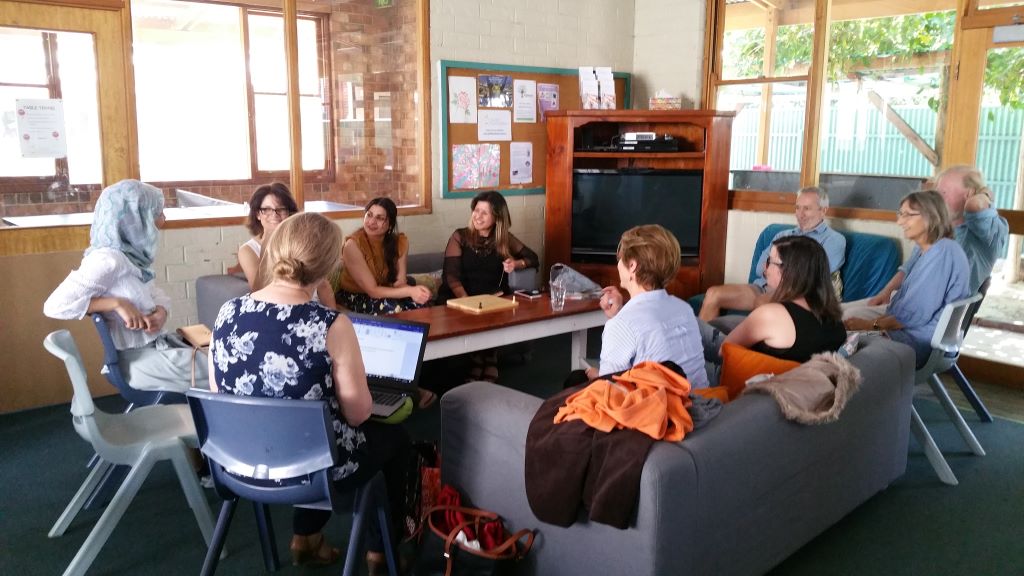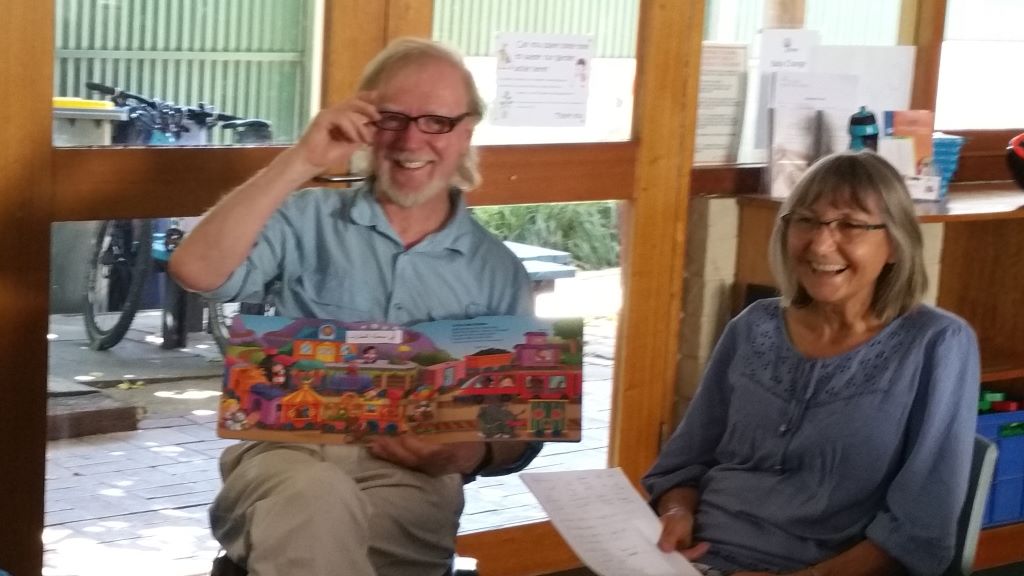We had a most enjoyable “dardasha” session on Sunday 18 March, with much laughter and fun. There were five native Arabic speakers and six others with varying degrees of Arabic fluency.
We were very lucky to have the company of Lur, a young Iraqi writer, newly established in Adelaide. Five years in Australia, honours degree in writing from Adelaide University. She has written a book, hosted conferences, written for magazines and made videos, a very positive role model for women of any persuasion.
Next, another newcomer, Najwa, who came to Australia from Lebanon two years ago, showed us a Triz game which uses a board with shapes drawn on and a white and black pawn.
It was then time for a few of us to talk about a book we have read. Alison commenced with an outline of Juha and his Donkey جحا وحماره. This is a famous Arabic fable wherein Juha is travelling with his son and his donkey. Juha is constantly criticised along the road by various people he meets. He is accused of being cruel or stupid whether he rides the donkey, his son rides the donkey, they both ride the donkey, or they walk alongside the donkey. Eventually he and his son carry the donkey, in an attempt to please everyone. But they are ridiculed for this too. The moral of the story is that you cannot please everyone all the time.
While I did not understand all what Alison said as I am still very much a learner of the Arabic language, it did prompt me to look up the story further on the internet when I got home. There are various YouTube videos of this story and I particularly liked the one by a group of children as part of the “Hands up project”. The video was obviously taken by another young student and it was not a professional video, but it was heart-warming to watch. From my internet searches, I now see that Juha has lots of adventures, all with a moral. Thanks Alison, for introducing me to this character.
Next, Alice spoke about her time in Lebanon as a university student there. She thought it was amusing that one of her subjects in Lebanon happened to be English literature. However, she had an excellent professor and particularly appreciated books about memories of war and the sense of emotion these evoked.
We moved on to Mary, a teacher of Japanese and student of Arabic, who showed a colourful, A3, laminated production of “The Very Hungry Caterpillar” الدودة الجائعة جداً. This is a favourite book for young children as the caterpillar eats its way through various fruits and vegetables and ends up becoming a beautiful butterfly فراشة. Mary spoke in Arabic about the book and explained that she had translated it into Japanese and a friend had prepared the pictures from the original book. How’s that – from English, to Japanese and then to explain it in Arabic – fantastic, Mary!
Andrew, displayed a fun book which his young grandson loves – all about cars, trains, planes, buses and trucks السّيّارات والقطارات والطّائرات والباصات والشّاحنات. It was most enjoyable to hear Andrew speak in Arabic about this book and he did an excellent job of describing the various means of transport and stations, along with the colours. He was not sure how to describe the “forty flaps” which his grandson delights in opening, but I believe we settled on “أربعين صورة” in Arabic.
Bruno chose a more serious subject to talk about and he spoke fluently. Bruno enticed us to watch the movie and to read the book بناية يعقوبيان.
It was then my turn to speak and I had chosen a book by a Japanese lady, Marie Kondo, called “The life-changing magic of tidying”. I confess that I had to use Google Translate to find out how to say that in Arabic سحر تغيير الحياة بالتّرتيب. A book on tidying seems rather trivial in a world with daily news of wars and other terrible events, but it seems that many of us are struggling under the weight of too many material things in our homes. The author believes we should only keep items that “spark joy” and this entails holding each item in our hands to decide. She advocates throwing out or recycling everything else that is not essential to our daily lives. It was interesting to learn about the widespread Japanese belief that material things have feelings and they should be thanked for their help in our lives. This book prompted a discussion about the minimalist movement around the world and we discussed expressions like الزهد والتنسك، التقشف
Japanese seems to have come up rather a lot in this article, but we were speaking in Arabic – no matter how basic – and it felt like a very joyful meeting.
We were then joined by the children’s group for afternoon tea where everyone was happy to keep chatting for well over the half-hour allotted time. A big thank you to all involved.
Sue Young


SHARE
